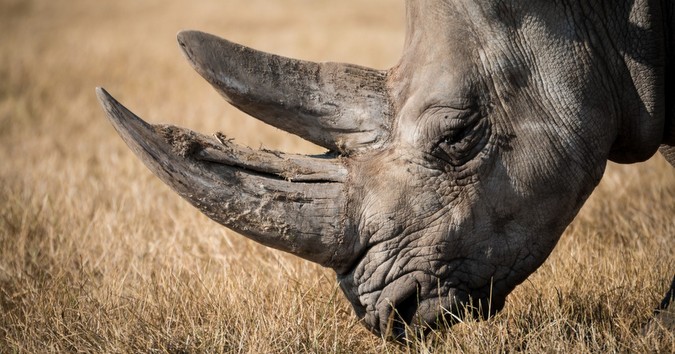
A recent study has revealed that the reasons why the Vietnamese buy illegal rhino horn is not only for medical and health-related reasons, but also as a form of comfort to those that are terminally ill.
Conducted by the University of Copenhagen and the Vietnamese office of Deutsche Gesellschaft für Internationale Zusammenarbeit (GIZ), the study found that there has been a shift in values that drive the poached rhino horn trade in Vietnam. For example, instead of using rhino horn as a treatment for cancer, family members are using it rather for a ritualistic purpose – offering it to those who are dying (from illnesses like cancer) as a source of comfort.
“For us, the surprising trend is that horn is increasingly being used as a symbolic gesture to console terminally ill family members,” said Associate Professor Martin Nielsen, of the University of Copenhagen.
“The horns are intended to provide the ill with a final source of pleasure and to demonstrate that their families have done everything possible to help them.”
Through 30 interviews with Vietnamese purchasers of rhino horn, it was discovered that the most prevalent use was for treatment of hangovers, followed by treating minor ailments such as backache and fever. And now, using it as a form of comfort to terminally or seriously ill patients hoping for a cure has been added to the list.
The demand for rhino horn is widespread and growing in Vietnam. From the interviews, it was revealed that over 70% of the respondents preferred horn from wild rhinos over farmed animals due to their perceived higher potency. The World Wildlife Fund estimates that 1,054 rhino were killed by poachers in South Africa in 2016, and 1‚028 in 2017. The number of rhinos remaining worldwide is estimated to be 30‚000, with an estimated 19,000 and 21,000 living in South Africa.
There is also a particular interest to those in the higher income brackets who are willing to pay premium prices for rhino horn in order to show off their socio-economic status, or by gifting it to seek favour and support from those in power. Powdered horn can fetch up to R1-million (500,000 kroner) per kilo.
With this new understanding of the different values of rhino horn, the researches hope that this will help in developing new strategies that can be used in campaigns to reduce the illegal trade in rhino horn.
“Understanding the motivation of horn buyers is vital for addressing this problem. Among other things, our results demonstrate that the nature of demand changes over time. As a result, we must continually rethink strategies to curb the trade in rhinoceros horn,” says Nielsen.
“The study suggests that information about the decline of rhinoceros populations and awareness about hunting being controlled by organised crime does not affect consumer demand. Dealing with the problem requires other strategies.”
The rhino horn trade is among one of the most organised forms of environmental crime, and the number of rhinos killed by poachers has increased markedly since 2008. Because Vietnam is the country with the greatest demand for rhino horn, it also bears the brunt of the blame for poaching.
Full report: Human Dimensions of Wildlife, Hoai Nam Dang Vu & Martin Reinhardt Nielsen (2018): Understanding utilitarian and hedonic values determining the demand for rhino horn in Vietnam
To comment on this story: Login (or sign up) to our app here - it's a troll-free safe place 🙂.![]()






